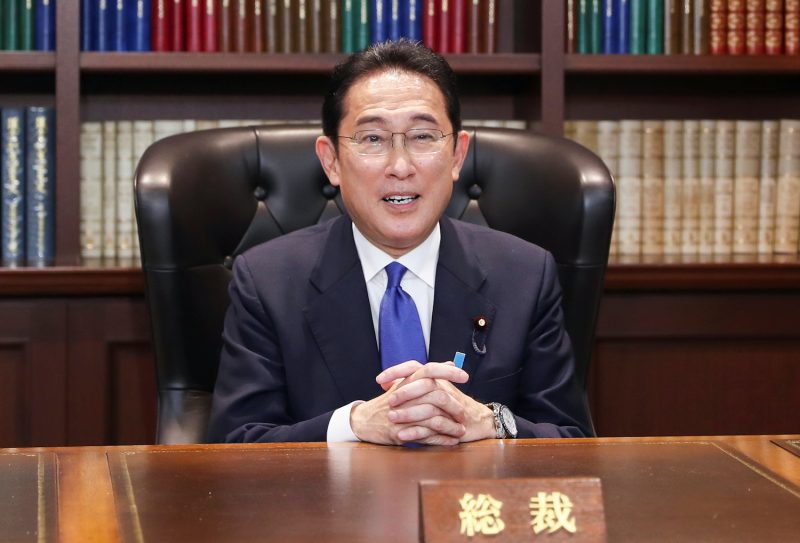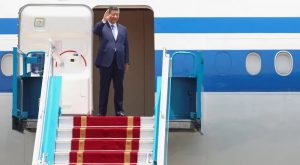Japanese Prime Minister Fumio Kishida pledged on Saturday $30 billion in aid over the next three years for development in Africa and said his country wants to work more closely with African nations.
In a video address to a Japan-Africa summit in Tunisia, Kishida said Tokyo would work to ensure grain shipments to Africa amid a global shortage.
But a key focus of the Eighth Tokyo International Conference on African Development was democracy and the threat to the world’s rules-based order since the Russian invasion of Ukraine in late February.
“If we give up on a rules-based society and permit unilateral changes of the status quo by force, the impact of that will extend not only through Africa, but all the world,” Kishida said by videolink after testing positive for Covid-19.
Japan and western nations are concerned about China and Russia exerting influence in Africa, with critics saying they have burdened poor nations with big debts from infrastructure projects.
Tokyo will extend loans of about $5 billion in coordination with the African Development Bank to boost countries’ finances and food security, the PM said, and invest close to $4 billion on green growth through decarbonization.
It will focus on human capital, seeking to nurture the talents of 300,000 people in key fields such as agriculture, healthcare, education and justice, he said.
Part of that would include helping African nations boost food production by training people in a bid to address shortages made worse by the war in Ukraine.
He said Japan would also step up efforts to help the continent fight Aids, malaria, tuberculosis and improve countries’ health systems.
$100m for Tunisia Fight Covid
Tunisia’s state news agency cited Japanese Foreign Minister Yoshimasa Hayashi as saying Japan was granting Tunisia $100 million to help mitigate the impact of the pandemic.
The summit has given Tunisian President Kais Saied his biggest international platform since his 2019 election and comes after he seized broad powers, formally enshrined through a constitutional referendum, a move his critics call a coup.
Speaking on Friday at a joint press conference with his Japanese counterpart, Tunisian Foreign Minister Othman Jerandi repeatedly emphasised Tunisia’s commitment to democracy, which has been questioned by Saied’s critics.
The summit has triggered a row between Tunisia and Morocco, which was angered by Saied’s decision to invite the Polisario movement that seeks independence for Western Sahara, a territory Rabat regards as its own.
Morocco and Tunisia have recalled their ambassadors from each other’s countries for consultations. Rabat said the decision to invite Polisario leader Brahim Ghali was made against Japan‘s wishes. Tokyo has yet to comment.
Tunisia is itself in need of financial support as it faces a looming crisis in public finances that has been worsened by the global squeeze on commodities. This week long queues have formed at petrol stations amid a fuel shortage, while shops have started rationing some goods.
- Reuters with additional editing by Jim Pollard
NOTE: This report was expanded with further details on August 28, 2022.
ALSO SEE:
US, Japan Chips Alliance Aims to Thwart China Ambitions
China Debt Trap Claims in Africa Stem From US Rivalry: Study
China’s BYD Seeks to Buy African Lithium Mines – The Paper
Chinese Firms Vie for Control of Huge DRC Lithium Project – SCMP
























